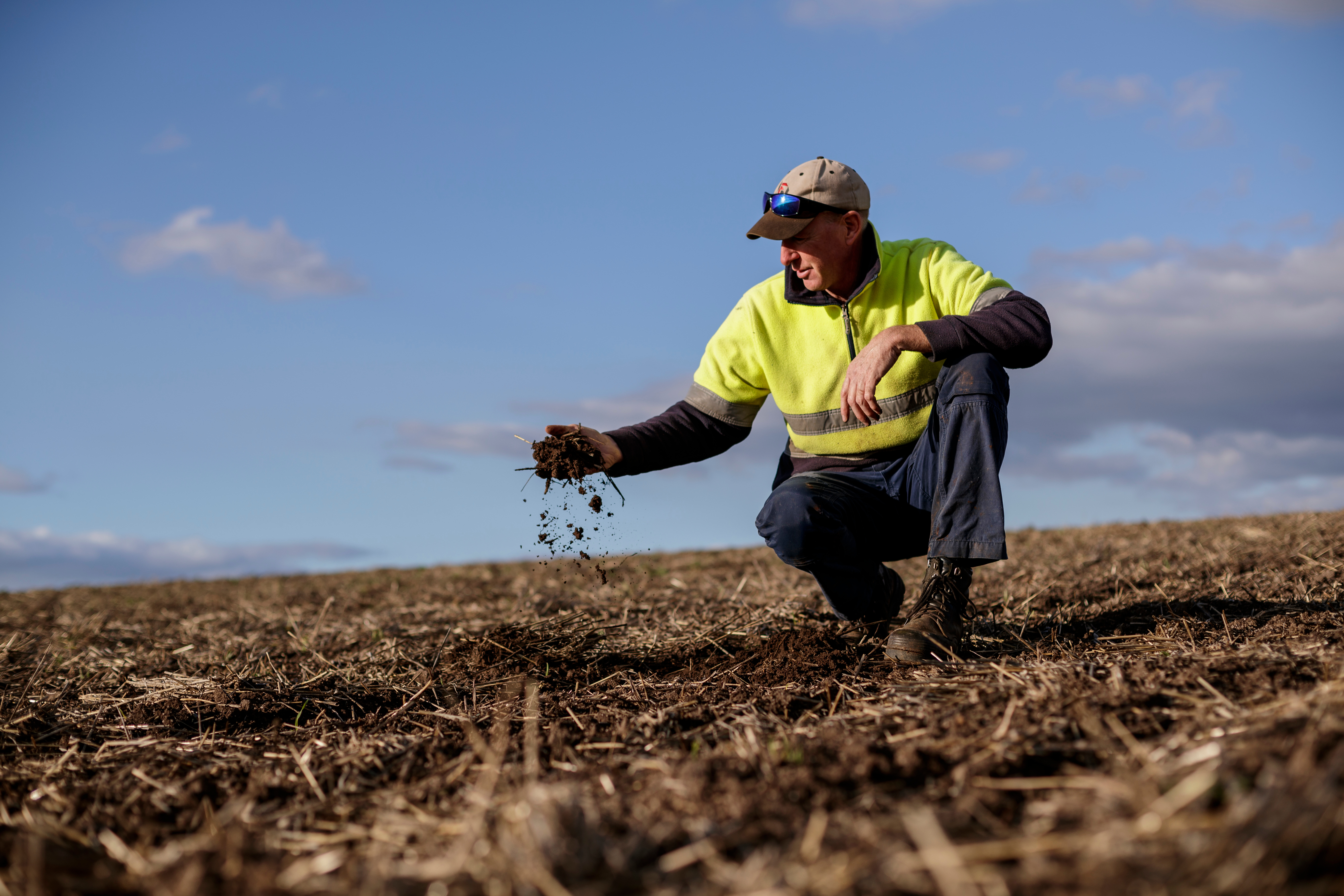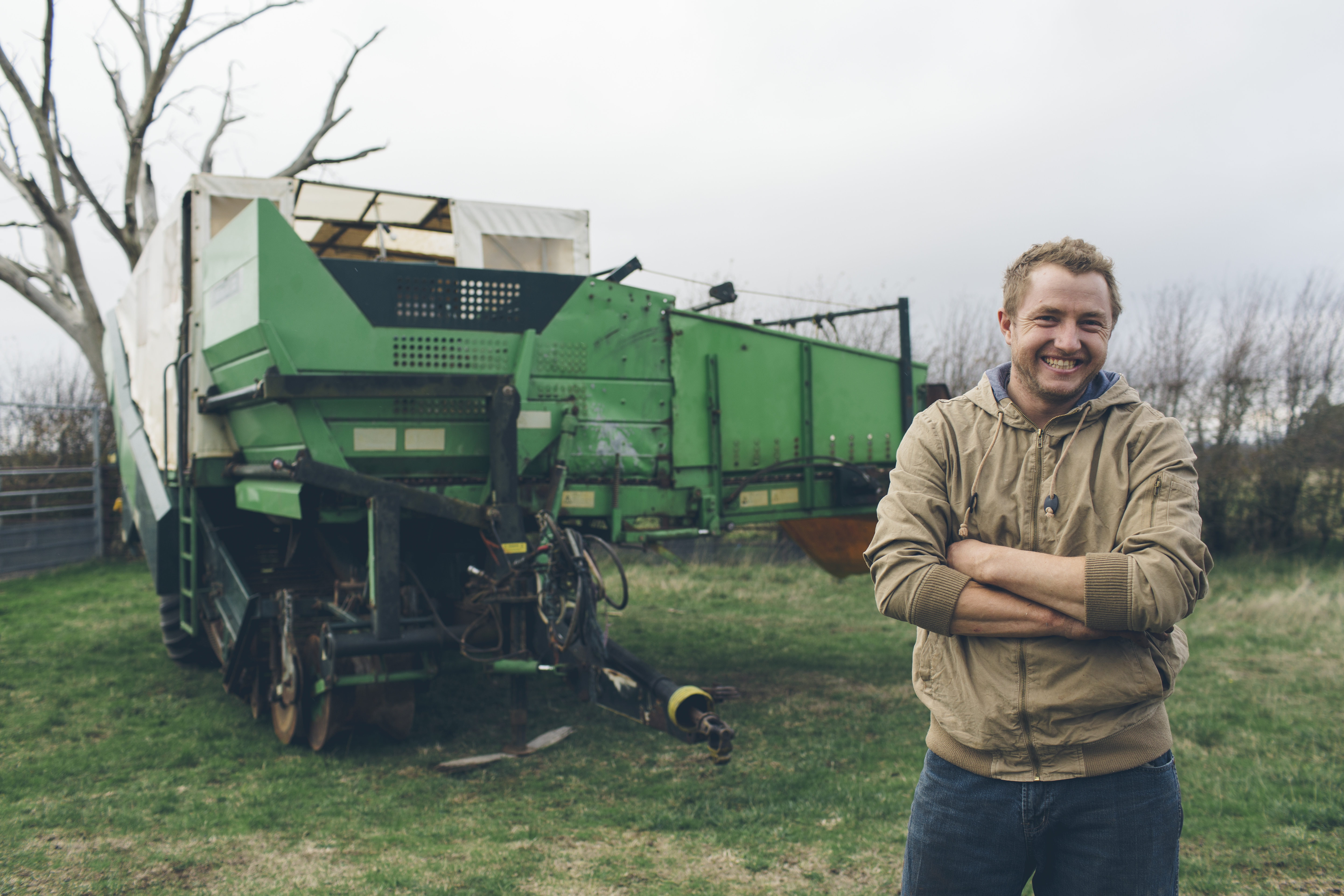
James Downey: Continuing a family legacy
14 June 2019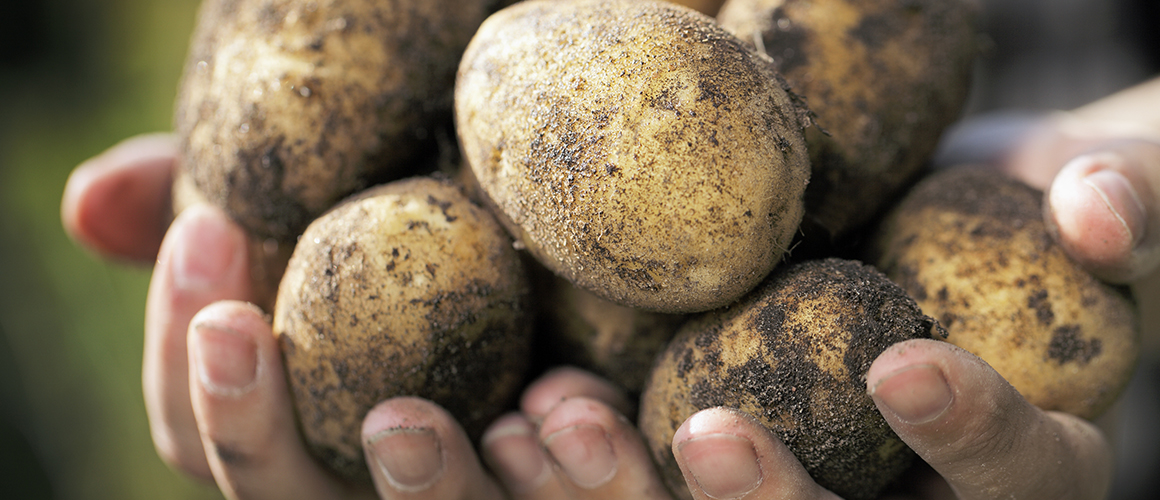
Potato growers learn about managing pests and diseases at Potato Industry R&D Forum
1 July 2019Nathan Richardson and his family own a mixed farming operation on the outskirts of Devonport in Tasmania’s north, which includes growing processing potatoes for Simplot. In addition to managing the family business, Nathan is the Chairman of the Vegetable Council within the Tasmanian Farmers and Graziers Association. He spoke to AUSVEG about this role, the changing landscape of potato growing in Tasmania, and the challenges this presents to growers.
Fast facts
Name: Nathan Richardson
Location: Devonport, TAS
Works: Tasmanian Farmers & Graziers Association
Grows: Potatoes
For over a century, Nathan Richardson’s family has been farming the fertile grounds of north-west Tasmania.
The Richardson’s current operation is a 125-hectare farm, located 18 kilometres east of Devonport. It is where Nathan and his wife Janine, along with his parents Rex and Janet, grow potatoes for the processing sector, cereals, hemp, fat lambs, poppies and broiler chickens.
Prior to this, the farm was a dairy, beef and ewe lamb operation while several other vegetables were grown up until the early 2000s. Nathan enjoys the potato growing branch of the operation, and the Richardson family has been supplying Simplot’s Ulverstone processing plant with potatoes since it opened in the early 1960s. Nathan’s passion for horticulture is reflected in his role as the Chairman of the Tasmanian Farmers and Graziers Association (TFGA) Vegetable Council, a role that involves liaising with vegetable growers on a daily basis, listening to their concerns and extending independent advice.
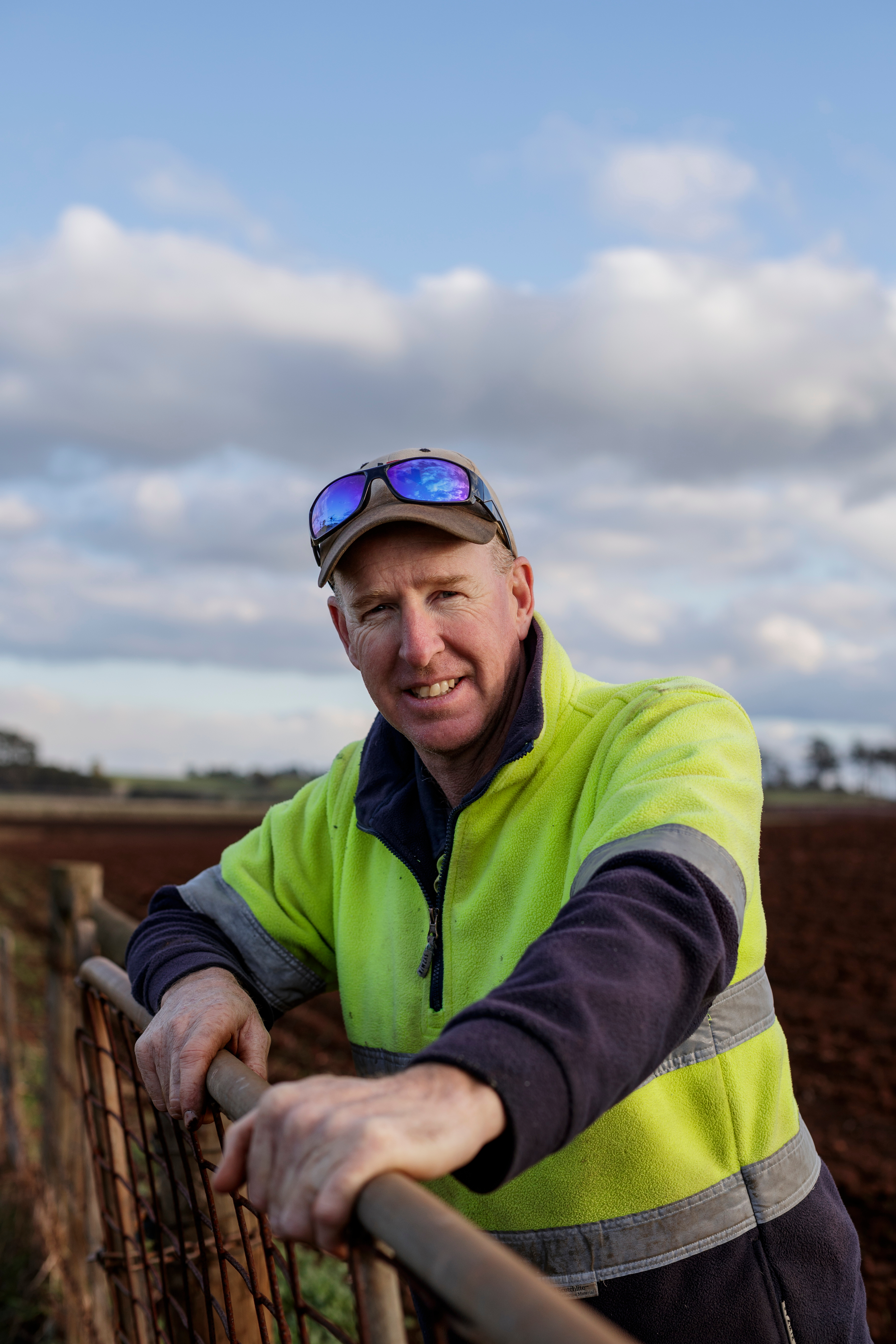
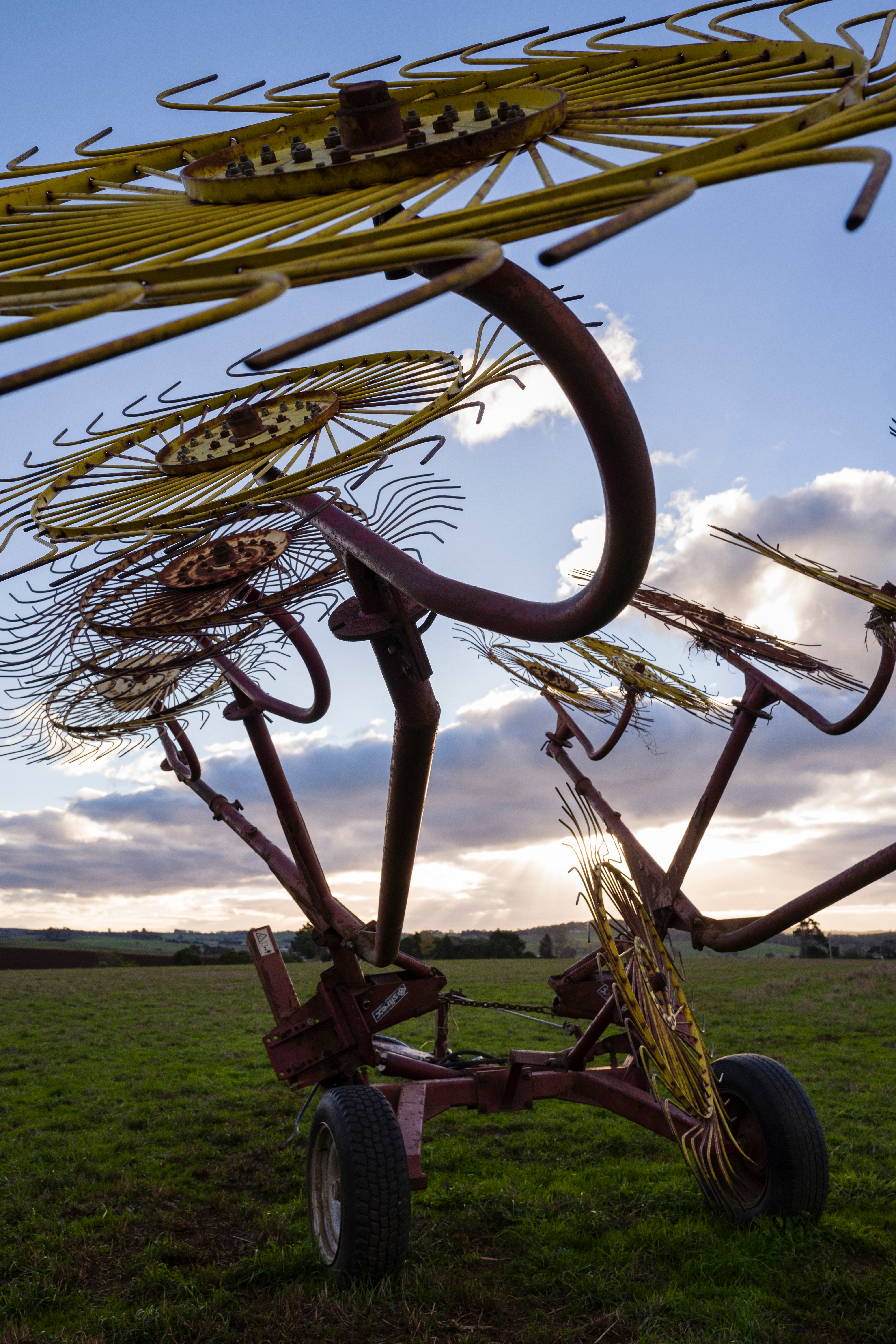
Born to farm
Nathan’s farming career began when, at just 16 years old, he finished high school and completed a farm apprenticeship through education and training service provider TasTAFE.
“From there, I learnt from my parents and that has morphed into the role I currently have today,” he says.
Nathan oversees both on- and off-farm aspects of the business, from the paddock to financial management and planning. His father Rex has a more relaxed role these days, assisting his son with livestock husbandry and irrigation while Janine also helps with livestock husbandry and farm accounts. Nathan’s parents also cover his role when he’s away at meetings.
“I still get on the tractor and do all the spraying. I have a complete manager’s role in our day-to-day operations. We have 1-2 part-time workers throughout the year and we manage them as well,” Nathan says.
In 1992, Nathan began attending TFGA meetings as a Vegetable Council representative through the Rural Youth Organisation of Tasmania. Five years later, he joined the TFGA Potato Committee as an area representative.
“Since then, I’ve been fortunate enough to be on the negotiating committee for Simplot growers and did that for about seven or eight years. For the past three years, I’ve been Chairman of the Vegetable Council within the TFGA.”
“For my own business, the biggest thing for me now is to maintain what I’m doing and to try and expand."
Industry focus
Nathan says the TFGA is important for Tasmanian farming and businesses as it tackles government policy, discusses major industry issues and provides a voice for the state’s farmers and producers.
“It gives our industry a profile and on a personal basis, it’s also given me a way in to talk to some pretty high-level people, whether it’s in government or big multi-national businesses. It’s quite rewarding to sit down with some highlevel management of these companies as a farmer and a grower representative,” he says.
It has also allowed Nathan to travel internationally to attend events such as the World Potato Congress, which was most recently held in Peru in 2018.
“We’ve met some absolutely fantastic people on these trips. We’ve got networks around the world which are very valuable when you want to know something. You can’t put a price on that information,” Nathan says.
Meanwhile, the Tasmanian potato industry received the exciting news in March that both Simplot and McCain are expanding their processing plants, a move that Nathan welcomes.
“Any time there’s money invested in processing something in Australia, that’s a good thing. It gives people surety that we’re going to have an industry in the future,” he says.
“Simplot has a good history of reinvesting into the plant at Ulverstone, but this one’s quite significant in the fact that it’s another production line (specialty battered lines), which means it wants our potatoes and likes doing business here in not only Tasmania, but Australia,” Nathan says.
“It also means that the Australian consumer wants to keep buying our product. That’s where we’re getting a win.”
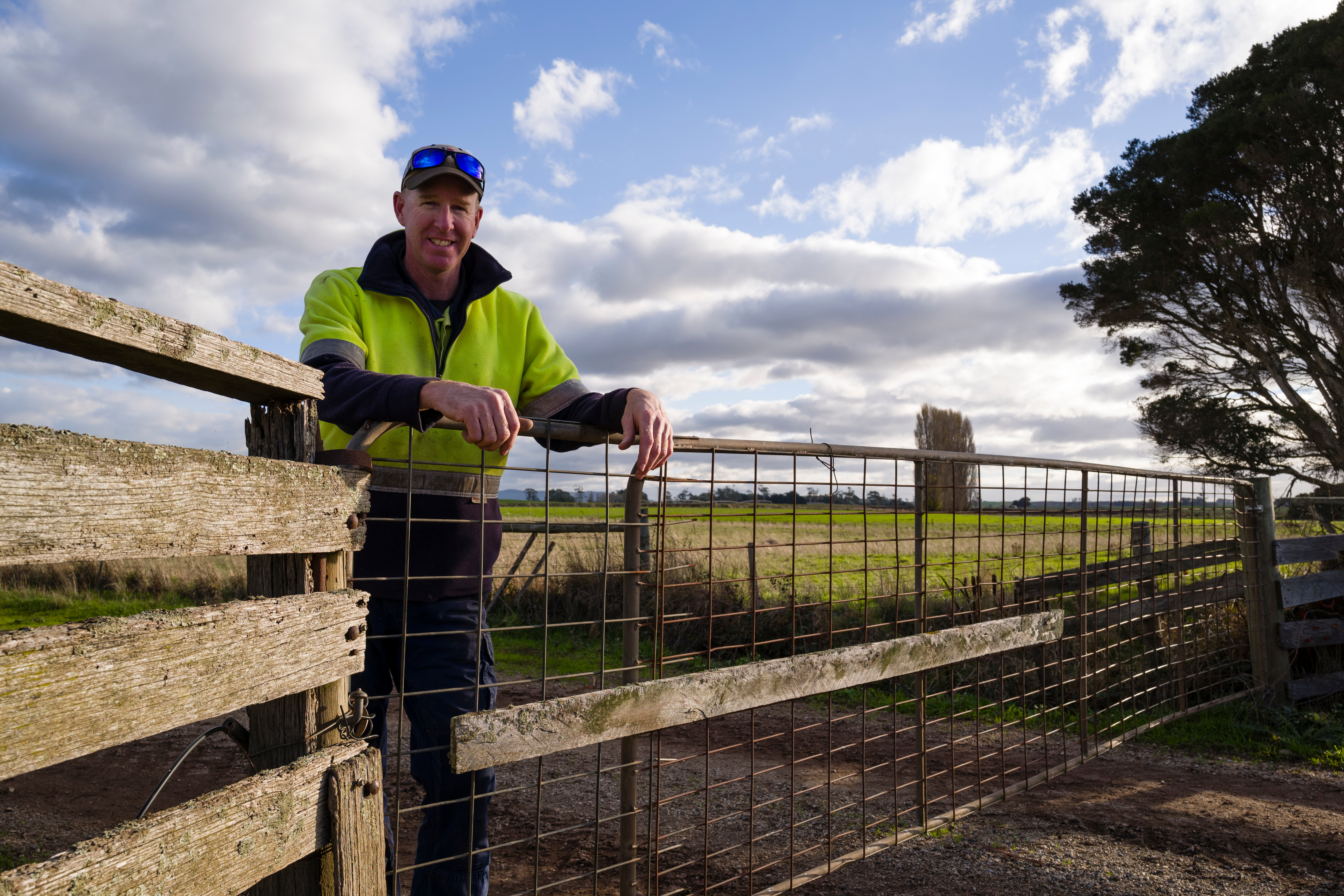
Addressing challenges
Despite the positive steps that are being taken by Tasmania’s major potato processors, Nathan believes there will be ongoing issues for growers in the state.
“The challenge is to try and get the message through to the Australian processors, packers and supermarkets that growers need to be adequately compensated so they can reinvest in their businesses.”
“We also need to update equipment; we need to move with the times and that takes capital. We need to be paid more for our product because our farming production system is very expensive compared to other parts of the world – but it’s in line with doing business in Australia. What we really need is a hit in the back pocket from everyone that our operations do business with.”
There are other challenges that growers face, including attracting staff and the next generation of workers to join the business.
“The biggest concern I have for the future of Australian agriculture is that growers and farmers may become very hesitant in suggesting to their children to come and take on farming as a future. That does extend into our current problem around the country of being able to attract really good staff.
“Our challenge is the decade after decade lack of sustainable profitability, and our businesses not being able to compete in the workforce as far as the salaries we can offer. And that has to change.”
One way to encourage younger people onto the farm is more education around the career opportunities that are available in agriculture.
“The industry is very technology-based now and there are a lot of fields within farming that you can do without drenching a sheep or planting a potato. There are great ways to open doors in agriculture; whether it’s developing an app or studying irrigation and soil and crop production systems or data management, right through to managing regulation and compliance.”
Long-term vision
Nathan is always searching for new technologies and innovation as he strives to continue to invest in efficient systems to produce environmentally sustainable and healthy crops into the future.
Additionally, Nathan has high hopes for the Tasmanian potato industry, including its expansion.
“I think our ability to grow more potatoes is there in nearly all areas of the state. Potato is one of the very few crops that grows in nearly any soil type and weather conditions,” he says.
“There will be importance placed on sustainable farming systems, and Tasmania is definitely at the forefront of that. We record a better average rainfall and have fewer extreme weather events, such as floods, cyclones and heatwaves, that put pressure on mainland production systems.
“We have really good levels of investment in irrigation systems around the state. Our population is growing both in Australia and around the world, and we’re going to have to produce more. That’s what I think the future is: to keep producing more while looking after the environment.”
On a national level, Nathan would also like to see more Australian potatoes tread the path to exporting to our Asian neighbours.
“We need to focus on export. I saw the latest export figures for Australian potatoes into countries in south-east Asia, and the volumes that we export is nothing compared to what European countries are getting in there. We’re the closest to south-east Asia geographically and we need to work out how, as a country, we can export and compete on the world stage.”
This grower profile first appeared in the leading magazine for the Australian potato industry, Potatoes Australia. If you’d like to subscribe to receive a new edition of Potatoes Australia in your mailbox every two months, use our online subscription form!
Photography credit: Heath Holden

